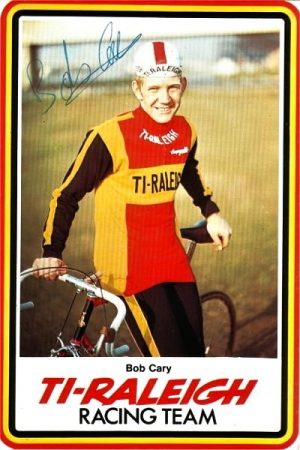
The Dutch finished second to the West German side in the finals but changed how football was played, forever.
“Total Football (Dutch: totaalvoetbal) is a tactical theory in football in which any outfield player can take over the role of any other player in a team. It was made famous by the Netherlands national football team in the 1974 FIFA World Cup.”
But it wasn’t just Dutch football which changed the way sport was looked at and practiced; this was the era of Dutchman, Peter Post and his mighty Raleigh armada – Total Cycling!
As well as the change in dynamic from having a team with a sole leader in the Anquetil/Merckx mould, to team where virtually everyone had their opportunities, everything mattered; the bikes had to be the best, the clothing had to look the most stylish and fit properly, the cars had to look stunning. Winning was everything.
It was 1972 when Raleigh came back into team sponsorship with a team comprised largely of British riders with a UK programme and George Shaw as team manager.
But in ’73 they spread their wings to Europe – however, the results weren’t encouraging.
For 1974 the company decided to push deeper into Europe to boost those all-important sales figures; former Paris-Roubaix winner and Six Day ‘Keiser’ Peter Post was recruited and the team augmented with Dutch talents such as Roy Schuiten.
By ’75 Shaw was gone, Post was completely in charge and German ‘Golden Boy’ Dietrich Thurau was on board but still with a smattering of GB riders. But by ’76 the team had gone ‘total Euro’ save for two names, Dave Lloyd and one Bob Cary.
High times we caught up with the Londoner, Cary.
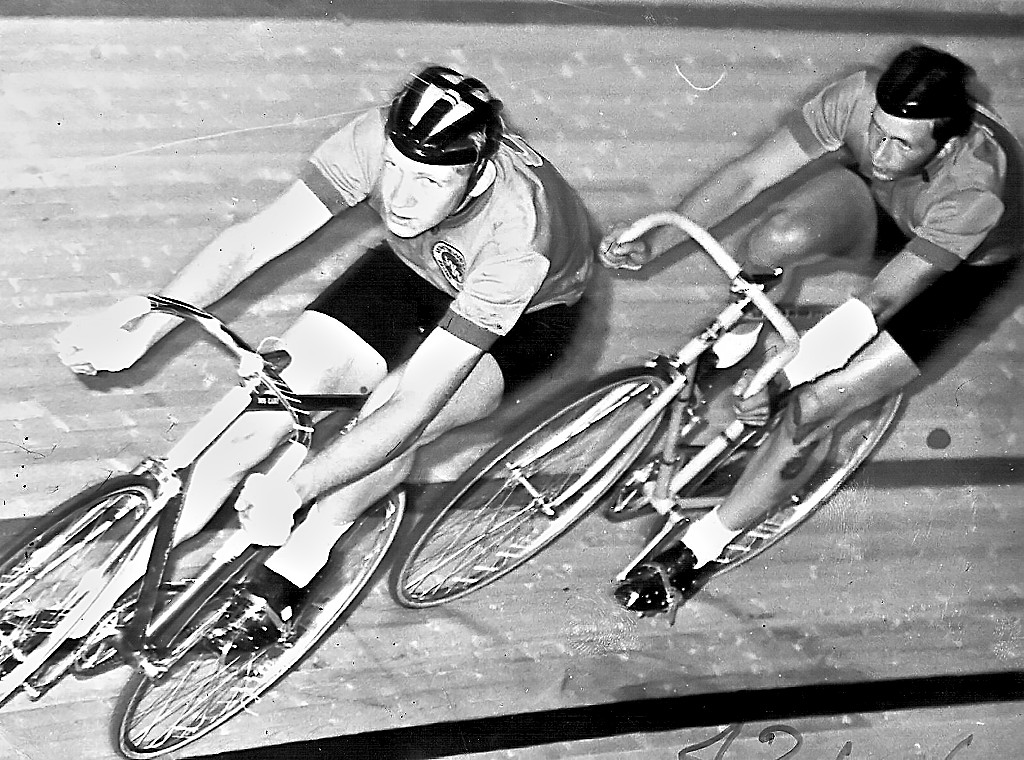
You turned professional with TI Raleigh in 1974, tell us about your career up until then please, Bob.
“I was a pretty good junior but I had been sick a lot as a youngster and spent a lot of time in hospital.
“I used to go to the Condor Cycles shop in London and look at the pictures they had up on the wall – and I decided I wanted to be a professional cyclist one day.
“In 1969 I was Inner London Champion with Eagle Road Club.
“But then I joined the Whitewebbs Cycling Club where I trained with the famous British time trial champion, Alf Engers – we’d knock out two-up 10 mile time trials in 20 minutes which was pretty quick back then.
“As a road rider I progressed from junior to second category to first category when I started to ride Star Trophy races; that was the season-long competition which incorporated all the big races in Britain.
“But I didn’t ride with my head, I was too aggressive and had to learn to ride smarter.
“I was North London Champion in 1972 and rode the Tour of Britain Milk Race, that year and again in 1973 when I was the late Phil Edwards’ domestique.
“Phil was the best British rider of the era and went on to be Francesco Moser’s right hand man.
“The Milk race was very hard, riding against the Poles, Russians and Czechs.
“I ended ’73 racing in France where I rode the Grand Prix de France time trial for Normandy, Patrick Perret – who went on to a 10 year pro career with Miko and Peugeot – won that, I punctured but still beat Ray Lewis of Great Britain by one second in that one.
“Ray was the ‘British Best All Rounder,’ which was the season-long competition to find the best time trial rider in Britain.
“I wasn’t a bad time trial rider, I could handle my bike well which was a big boon on technical courses; I won the early season North Roads Hard Riders time trial which is over a really testing course – small, gnarly lanes with lots of hills and bends.
“But the trouble with time trialling is that you end up only being able to ride at one pace.”
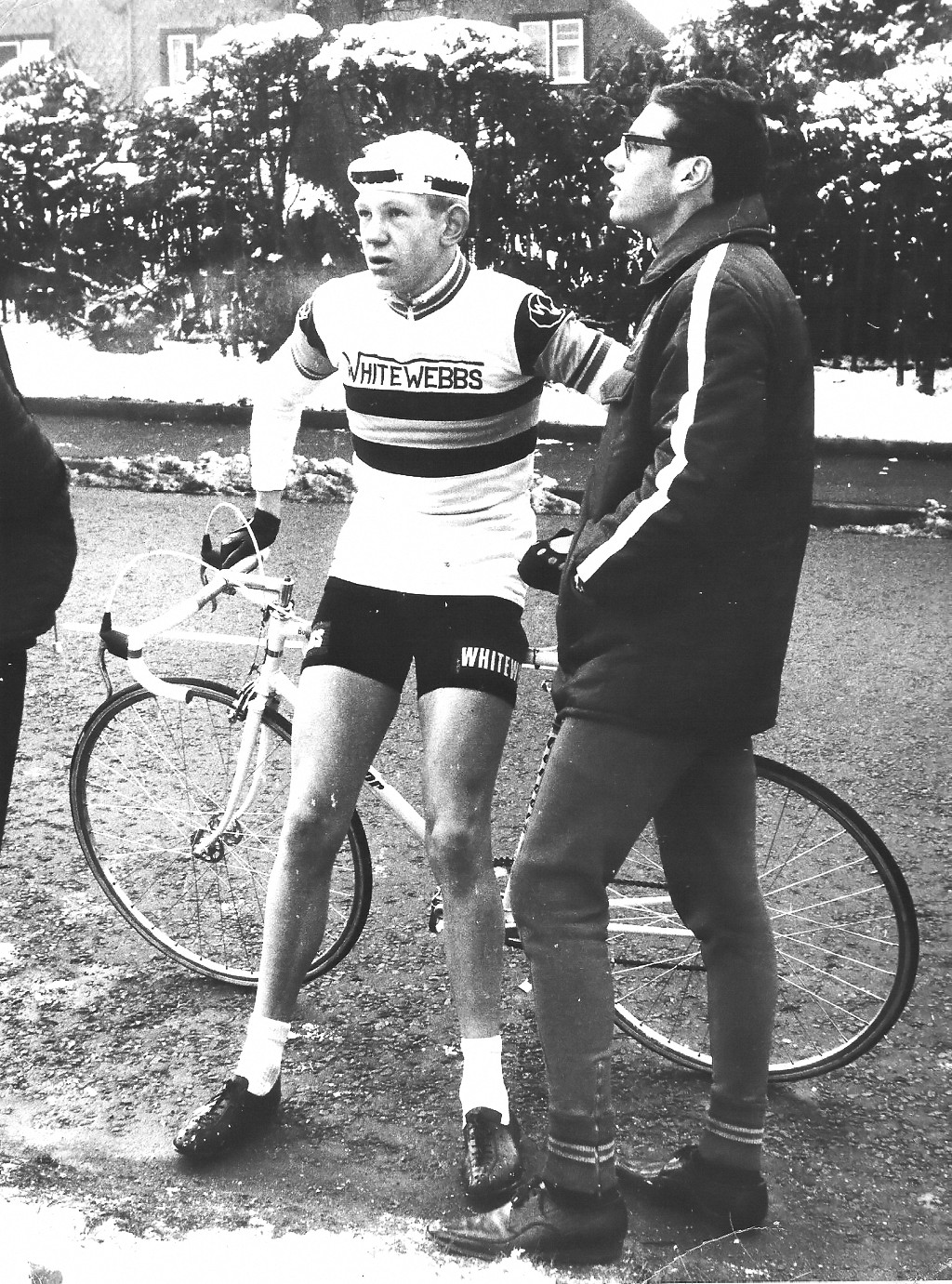
How did you get the Raleigh ride in ’74?
“Ron Webb, the guy who used to organise the SKOL London Six Day race was involved with Raleigh, he’d seen me ride on the old London Six Day track which was a training facility in an aircraft hanger down near Southampton [in Calshot, ed.] – he said to me; ‘Do you want to turn pro, Bob?’
“There was the British section of the team and there was the ‘Euro Team’ – my first race was with the Euros; The Tour of South Holland in the wind and rain!
“With the benefit of hindsight I could have done with a year or two competing at international level before I took the plunge.
“With Raleigh there was no nurturing from the GB manager, George Shaw, you were just thrown straight into it.
“In ’74 I had numerous top 10 finishes in the UK and won a criterium up in Barrow in Furness – Peter Post and Ron Webb selected me for the Euro team to race in criteriums over there so at the end of the season my contract was renewed.”
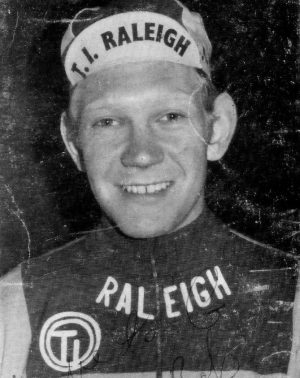
Then you were with the team ’75 and ’76?
“In the winter of ’74 I went to night school and learned Dutch – I wanted to know what was getting said!
“And I emigrated to The Netherlands with Dave Lloyd.
“I’d say my best year was ’76 – I put in a good winter and then paid my own way to the GAN-Mercier pre-season training camp on the Riviera to ride with Barry Hoban and Raymond Poulidor.
“I got some top 10 finishes in races down on the Cote d’Azur and Post told me that I may well be riding the Tour de France.
“I rode the big classics, Paris-Roubaix and Liege-Bastogne-Liege; that was a savage race you’d go from 53 x 13 to 42 x 26 in a matter of yards.
“I really wanted to ride the Tour and so over a period of 35 days I rode 25 criteriums, finishing in the top 15 in all of them.
“I even raced twice in one day, in Northern France in the afternoon then in Eeklo in Belgium in a nocturne.
“Some days I was doing 300 kilometres, riding to and from the race.
“Unfortunately, I collapsed with pneumonia – so no Tour.”
What was it like riding alongside all those 70’s stars?
“Most of them were really good guys, the late Gerrie Knetemann in particular was a nice person.”
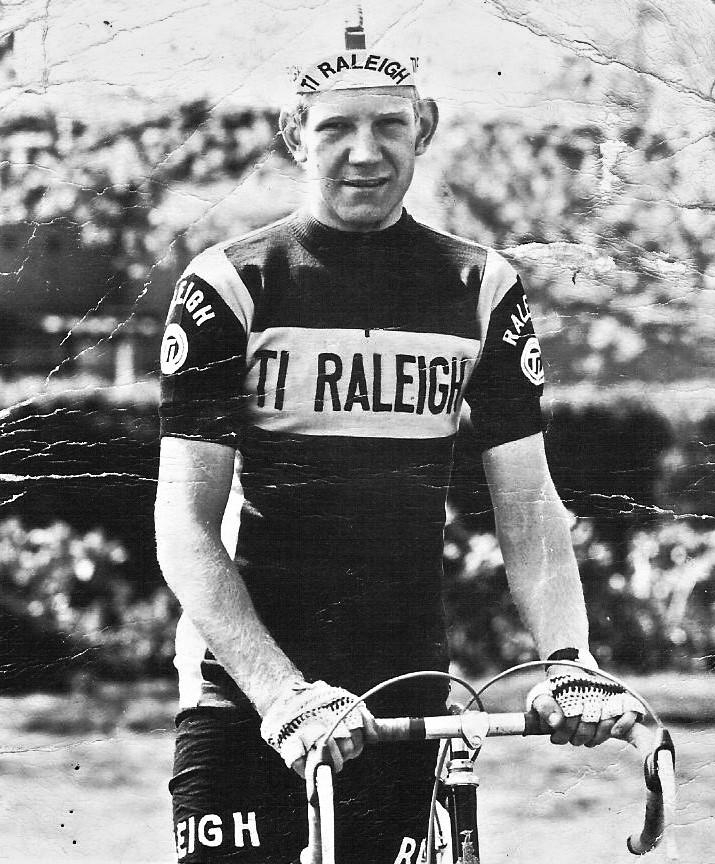
The team was always immaculately turned out, wasn’t it?
“The bikes and clothing were the best – but you had to buy your own socks and track mitts!”
What about Peter Post, we’ve all heard so many stories about his ‘anti-Britishness’?
“He had us all reduced to tears at one time or another, he could be a horrible man.
“I don’t think that he was ‘anti-British’ just much more pro-Dutch talent – riders like Roy Schuiten.
“You had to be able to stand up to him but he could be a difficult; I remember him phoning me at 03:00 am telling me there had been a change of plan and I had to be at the start of such-and-such a race in Amsterdam in the morning – but I was there for the start that day.”
Brits were still a bit of a rarity in the pro peloton back then?
“I think I was generally accepted and respected in the peloton, of course you had the Belgian and Dutch combines but the Aussies Graeme Gilmore and Danny Clark and I would ride for each other in the crits.
“I even had my own supporters club over there, they used to say I looked like Barney Rubble from the Flintstones!
“But when I look back I had never really shone as an amateur before I turned professional – it was the wrong team to go pro with.”
When you look back on that phase of your career, what were the highlights for you?
“I fondly remember winning the North London Champs, and riding tough Milk Races as an amateur is something to be proud of – but as a pro I rode the Classics and am grateful for those time I spent on the continent having come back from illness and injury as a youngster.
“The one thing I always remembered was what my coach, Frank Westell told me; ‘being a successful racing cyclist is 80% mental attitude.’”
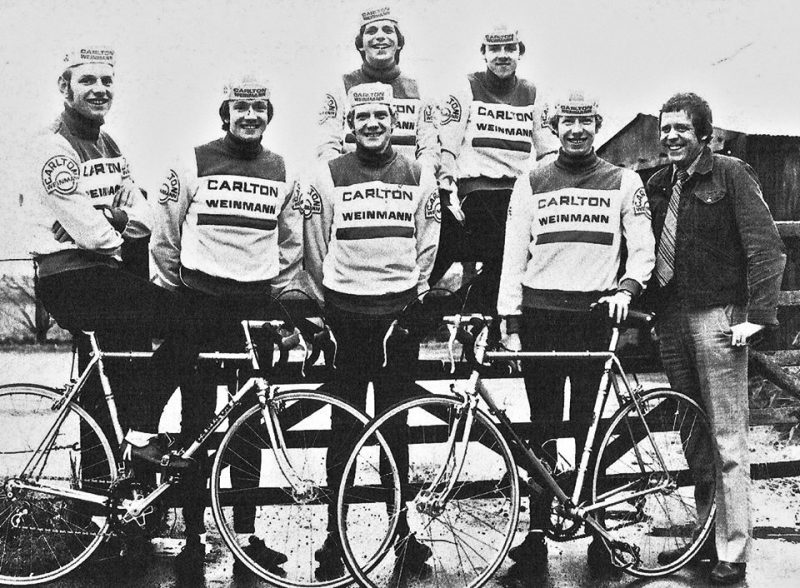
Bob raced for as a professional for several seasons more in the UK with Carlton-Weinmann, Glemp-T.J.Cycles and Carnation-Build Up before moving on to a long and varied coaching career in coaching in Africa and the USA. Among those he has coached are former British Time Trial Champion, Alex Dowsett (now with Israel Start-Up Nation) and US National Track Champion, Danny Van Haute.
We talk more with Bob in Part Two, about life after TI-Raleigh.



